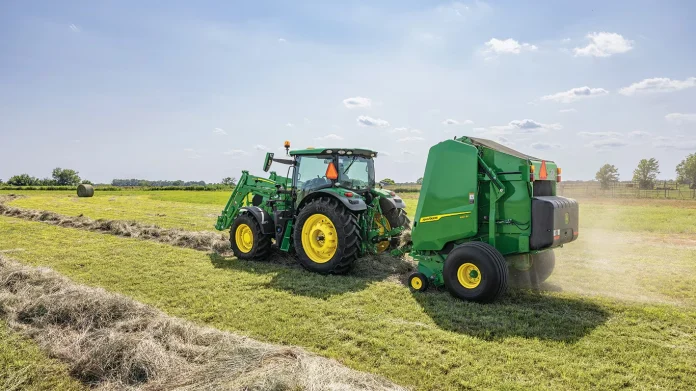In today’s challenging market, agricultural equipment manufacturers are reinventing their strategies. Despite a noticeable sales slump last year—up to a 10% decline in some quarters—industry leaders are plowing forward with significant investments in advanced technology upgrades to secure their future.
Facing a Slump with Innovation
When the market turns tough, manufacturers are turning to innovation. Companies like John Deere, Case IH, and AGCO are ramping up their research and development budgets by over 20% to integrate digital technologies into their machinery. The strategy is clear: modernize equipment to offer improved productivity, enhanced precision, and comprehensive connectivity that empower farmers to make data-driven decisions.
Real-World Tech in the Field
One standout example is John Deere’s latest 9R Series tractors. These machines now feature advanced telematics systems and precision guidance—enabling farmers to reduce overlaps in field operations by up to 15%. Similarly, Case IH has updated its Magnum combine harvesters with integrated yield mapping and remote diagnostics. AGCO’s Fendt 900 Vario tractors, known for their fuel efficiency, now come equipped with IoT sensors that continuously monitor performance, predict maintenance needs, and optimize field operations.
Manufacturers are not only upgrading hardware but also enhancing software solutions. Digital platforms that collect real-time data, cloud-based analytics, and user-friendly interfaces have become integral to these machines. Early tests indicate that autonomous tractor trial models can improve operational efficiency by 15% compared to traditional manual controls.
A Comprehensive Upgrade Strategy
The current downturn has forced companies to reexamine every facet of their operations. Investment is flowing into areas such as:
- Precision Agriculture: Enhanced GPS guidance and automated steering systems ensure that every pass across the field is optimized.
- Connectivity and Data Analytics: Integrating sensors and remote monitoring allows for proactive maintenance and decision-making.
- Advanced Control Systems: Upgraded electronic controls are improving machine responsiveness and safety features, critical in today’s competitive environment.
These technology upgrades not only aim to boost equipment performance but also provide farmers with actionable insights, potentially increasing overall crop yields and operational sustainability.
Looking Ahead: Building Resilience for the Future
While the sales slump presents immediate challenges, manufacturers remain optimistic about the long-term benefits of these investments. By doubling down on technology, they are preparing for a future where digital innovation and smart agriculture drive the industry forward. As farmers become increasingly reliant on precision and connectivity, the new generation of equipment will be pivotal in re-establishing market momentum.
Even in tough times, the commitment to upgrading machinery technology is transforming the way farmers operate—ensuring that despite short-term setbacks, American agriculture remains competitive, resilient, and ready for future challenges.
In a climate of uncertainty, the industry’s focus on technological innovation not only plows through current hardships but also lays the foundation for a more efficient and profitable future in agriculture.

